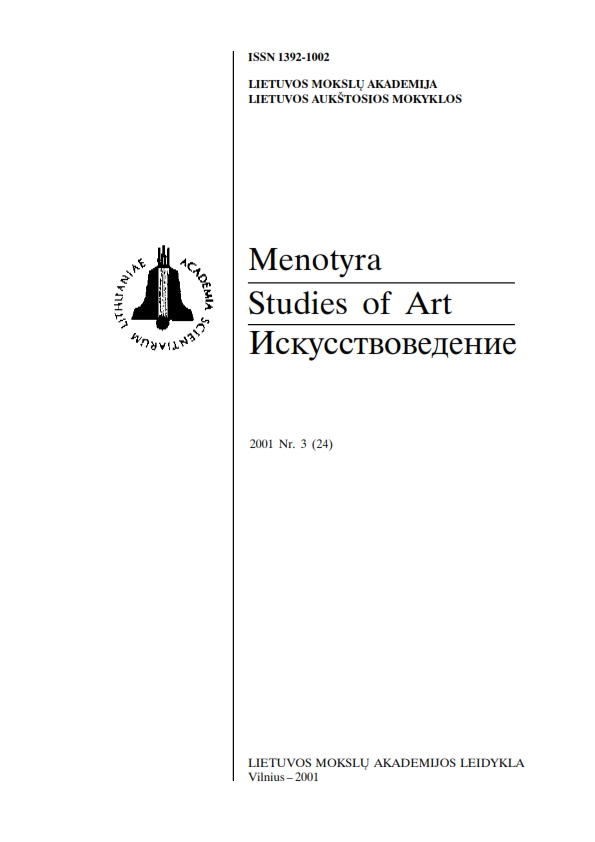Lietuvių profesionaliosios muzikos tautiškumo prielaida Juliaus Juzeliūno teorinėje komponavimo sistemoje
National prerequisite of Lithuanian professional music in Julius Juzeliūnas' theoretical system of composing
Author(s): Rimantas JaneliauskasSubject(s): Music
Published by: Lietuvos mokslų akademijos leidykla
Summary/Abstract: The article deals with the analysis of Julius Juzeliunas' theoretical system of composing in respect of contemporary theory and practic. The nucleus of the system under the analysis is an original theory of a national harmony. The composer perceived the expression of a national character as the adaptation of ethnostructures to more contemporary principles of composing. Diferently from his forerunners (M. K. Ciurlionis, J. Gruodis), the composer made an attempt to motivate the chords of verticals through the ethnomelodic intonations referred to as the structures of key tones. He believed that the structures of key tones make it possible to tansform a horizontal of the modal melodies into an adequate harmonic vertical. Anyway, the dual model of the sutartines (polyphonic songs) noticed by the composer seems to negate this possibility, because the melodies of sutartine's voices based on thirds contradicts complementarity a second-based relationship of the verticals of thevoices. It is common knowledge that the majority of Lithuanian oldest monodies are genetically associated with the sutartines. Thus, here arises a doubt concerning chordbased prerequisites of modal melodies. Having reformed the chordics, irrespective of the discrepancies between the perception of melodic and harmonic intervals, he partially makes use of the functioning practice of the major-minor chordics. The composer's functional system of harmonics is particularly marked by the expression of intervals, which compensates the high-pitched key functioning of elements. By way of limiting the functional alteration of elements through the exhaution of 12 tones in the portions of separate intonational cells, he comes close to J. M. Hauer's idea of dodecaphonic trope. The latter circumstance seems to have determined the sounding of the composer's more contemporary works. An analysis shows that the national character of the composer's works was greatly conditioned by his individual "psychological national complex". On the other hand, his theoretical conception of harmony must have influenced it to a slight degree. Thus, J. Juzeliunas' theoretical system of composing, which invested in his time the renovation of Lithuanian profesional music and partially theory with many creative impulses, today retains its proper topicality mainly in respect of its basic principle of the national character of music and much slighter with regard to its specific theoretical and practical form of expression.
Journal: Menotyra
- Issue Year: 2001
- Issue No: 3(24)
- Page Range: 3-16
- Page Count: 14
- Language: Lithuanian

